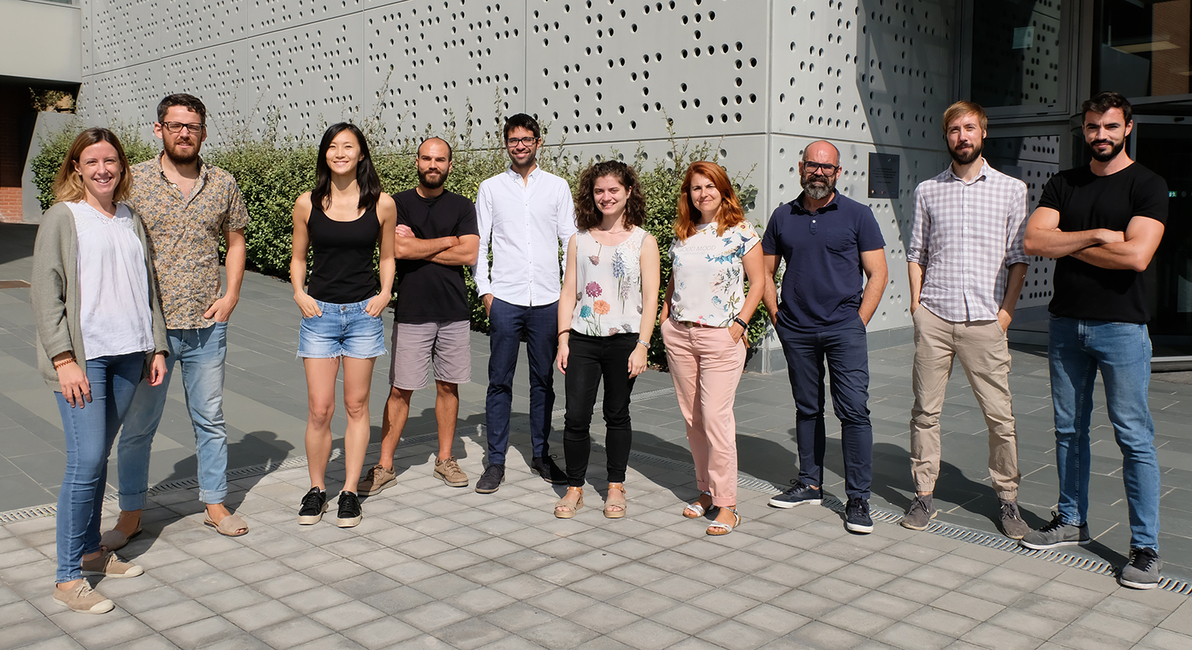New epigenetic targets identified for the potential treatment of multiple myeloma
Researchers at the Josep Carreras Leukaemia Research Institute have identified epigenetic alterations in multiple myeloma and have tested a compound that reverse those alterations, opening the door to a new therapeutic drug in the treatment of multiple myeloma

Multiple myeloma is an incurable type of cancer representing 1% of all cancers. It occurs when a type of blood cell (plasma cells) expand uncontrollably in the bone marrow. Most myeloma patients suffer from skeletal-related complications during the course of the disease, such as severe bone pain, pathological fractures and others, that affect both the quality of life and their overall survival. Mesenchymal stromal cells are essential in the formation and function of the bone marrow and the bone itself. It is well-documented that mesenchymal stromal cells from multiple myeloma are altered and contribute to the progression of the disease.
Dr. Esteban Ballestar's group has just published a study in the journal Nature Communications reporting the identification and characterization of epigenetic alterations in mesenchymal stromal cells from multiple myeloma patients that are associated with the altered functions of these cells in myeloma bone disease. Such alterations do not modify the cell’s genetic information but their capacity to use it, causing an abnormal behaviour in the affected cell.
The team has demonstrated that cancerous plasma cells are able to induce those epigenetic alterations in mesenchymal stromal cells that result in their diminished capacity for bone formation.
In addition, the team has identified a compound, named CM-272, previously developed by Dr Felipe Prósper’s team, that can reverse those epigenetic alterations and the altered functions of mesenchymal stromal cells from myeloma patients. The identification of these alterations, and the use of CM-272 to reverse them, may represent an important advance towards new therapeutic options in the treatment of multiple myeloma.
This study, whose first authors are Dr. Antonio Garcia-Gomez and Dr. Tianlu Li, was completed in collaboration with the teams of Dr. Mercedes Garayoa (Cancer Research Center, Salamanca), Dr. Felipe Prosper and Dr Xabier Agirre (Center for Applied Medical Research, Navarra) and Dr Manel Esteller (Josep Carreras Leukaemia Research Institute).
This research has been funded by the Asociación Española contra el Cáncer (AECC), that funded Dr Antonio Garcia, the Multiple Myeloma Research Foundation and the Spanish Ministry of Science and Innovation, co-financed by FEDER funds.
Reference article:
Antonio Garcia-Gomez, Tianlu Li, Carlos de la Calle-Fabregat, Javier Rodríguez-Ubreva, Laura Ciudad, Francesc Català-Moll, Gerard Godoy-Tena, Montserrat Martín-Sánchez, Laura San-Segundo, Sandra Muntión, Xabier Morales, Carlos Ortiz-de-Solórzano, Julen Oyarzabal, Edurne San José-Enériz, Manel Esteller, Xabier Agirre, Felipe Prosper, Mercedes Garayoa & Esteban Ballestar. Targeting aberrant DNA methylation in mesenchymal stromal cells as a treatment for myeloma bone disease. Nat Commun 12, 421 (2021). https://doi.org/10.1038/s41467-020-20715-x